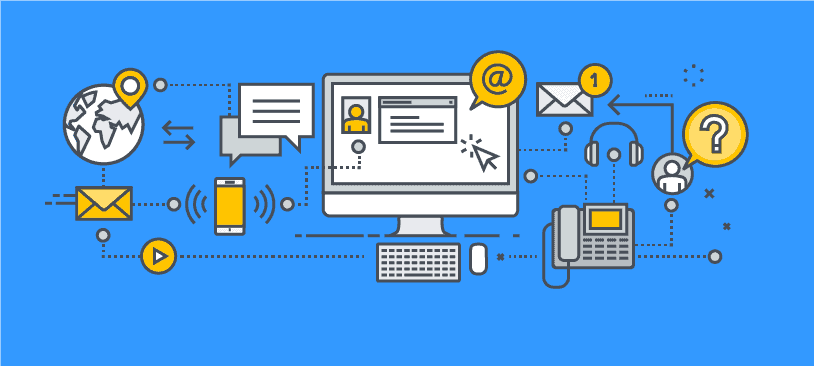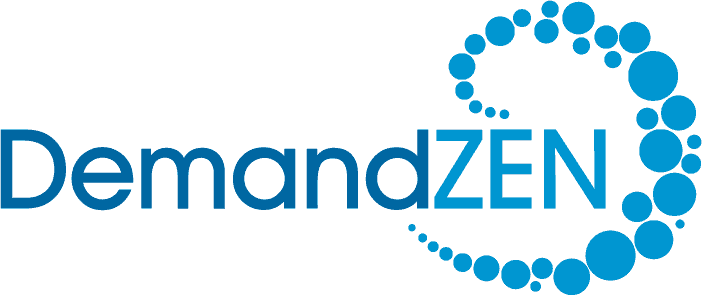Lead Follow-Up Best Practices: Mix Up Your Contact Methods

No matter how well your business is going, it can always use more leads. But it isn’t just about “getting leads.” You also have to keep them engaged and maintain contact to encourage conversion and prevent them from slipping away. That’s why a coordinated lead follow-up strategy is a must for any business determined to stay ahead of the competition.
What is lead follow-up?
Even the most successful lead generation efforts will ultimately be in vain if leads fail to convert to pipeline. This happens quite often and is usually due to poor lead nurturing and follow-up practices.
The two concepts, lead nurture and lead follow-up, are similar in that they both focus on the prospect’s need throughout their journey.
The aim of nurturing is to build a relationship of trust and respond to prospect concerns and expectations.
Lead follow-up is more about keeping contact with the prospects after they have been exposed to your brand. This can be done via email, phone, social media or face to face interaction.
Of course, to do this efficiently, you have to learn all you can about your prospects. Their needs and problems, personality and communication preferences.
Lead follow-up is a challenging task. It requires time and a significant portion of your sales resources. But it has to be an integral part of your sales strategy. Without it, you’ll just be waiting for leads to raise their hands and letting good leads cool off.

The importance of proper lead follow-up
Consistent lead follow-up is key to higher revenue in terms of sales volume and deal size. This is an important fact to remember since in practice, most salespeople follow up a lead only once or twice and give up.
Timely follow-up enables you to guide prospects through the buyer’s journey. By following up, you can give them more blogs and articles to help them through the awareness phase or benchmark reports and case studies for final decisions. Consistent follow-up will help your prospects feel appreciated, which helps build strong and lasting relationships.
Also, every follow-up teaches you something new about the prospect. You can use this important info to adjust your tactics and engage them more effectively.
Lead follow-up best practices for B2B
So, it’s clear that you have to implement a quality lead follow-up strategy. Take a look at these practices that help you perfect your follow-up efforts and meet your sales goals.
Follow-up through multiple channels
There’s a variety of channels you can use to follow up with your prospects. Phone calls, chat boxes, SMS, emailing or industry events. You can also use social media to interact with your prospects. For example, if they’re posting about you or interacting with your posts, you can like their posts and respond to or comments, or send them direct messages. Just be sure to stick to the networks they interact with you on, such as LinkedIn or Twitter. While you can advertise on alternate channels like Facebook or Instagram, we recommend not encroaching on their personal pages and “liking” family photos or videos of their kids.
Overall, there is no such thing as the best time or best way to contact a person. Every prospect has a preferred communication channel. Some prospects prefer direct communication over the phone. Others find email more acceptable for business communication. You’ll need to adjust your tactics to fit the person you’re reaching out to.
Still, despite your best efforts, some prospects may not respond. They may have chosen another brand or are still undecided. Whatever the reason, it’s important to find out if this is the case so as to avoid wasting time and resources. It’s in this way that lead scoring and intent data can help.

Emailing isn’t enough, add a call to the mix
Emails are a great follow-up instrument. But so are phone calls. Practice shows that the best approach is using both methods, coupled with social media interaction. This combination results in higher response rates than using either of these channels alone.
In general, you can use emailing as first contact to confirm the lead, follow up and nurture them. You can use calls to engage prospects on a deeper level.
The advantage of a call is that you get people’s attention right then and there. The downside is that they may choose to ignore the call if they are busy or cut you off at the start. You have the option of leaving a voicemail so that they can call you back, but then you may be busy when they call you.
On the other hand, the email can be read and responded to anytime. If the prospect reads it when they have time, they can give it their full attention. The downside is that if the prospect receives too many emails or has a busy day, yours can end up in the trash.
Use sales cadences
A sales cadence is a great technique you can use to streamline your lead follow-up efforts. It’s a system that defines methods of contact and dictates their frequency and timing.
Sales cadences allow you to organize a timeline of follow-up activities. You don’t have to contact people every day, though. Every other day will suffice. Your touchpoints should ideally include calls, voicemails, emails and social media.
For instance, you send an email on day 1. On day 3, you make a call and follow it up with an email later the same day. On day 5, you follow up via LinkedIn.
The length of your sales cadences should be determined by your sales cycle. Its structure will depend on the target company profile, the size of your sales team, budget, and etc.
There are many advantages to using a sales cadence. It brings order, structure, and repeatable results to your sales efforts. Once you establish a sales cadence, it will be much easier to track and optimize your sales process. Perhaps your prospects respond better to emails early on and to calls later in the follow up process. Use this knowledge to fine tune your sales cadence and process.

Have something meaningful to say
What you say or write during lead follow-up is crucial. Avoid contacting a prospect just to check in. You have to offer something meaningful.
Consider competitive sheets that show why your brand is superior. Or a piece of educational content, like a white paper, eBook or an interesting webinar that may be related to an action they’ve already taken.
Be there for your prospects. Offer them a fresh perspective on how to manage their pain points. Provide supportive information and useful advice.
Make sure you are prepared for any questions they may have. Always provide thorough answers to strengthen reliability and build trust. Don’t be afraid to take a question you can’t answer offline and follow-up later. Giving them the right answer later versus the wrong answer now is a surefire way to damage your relationship with the prospect.
All in all, lead follow-up isn’t as difficult as it is heavy on time and resources. So do your best to make things easier for your sales teams. Organize customer relationship training and invest in CRM apps to effectively manage lead interactions.
You can also get external help with your lead generation and follow-up. And that’s exactly what we specialize in here at DemandZEN.
We can support your lead generation and lead follow-up programs, SEO and marketing efforts throughout the sales cycle. Everything you need to boost your business and increase ROI.
You Might Also Enjoy These Posts
B2B Appointment Setting Tips and Tricks that Always Work
How to Create an Exceptional Client Experience
Welcome To DemandZEN
DemandZEN specializes in Account-Based Demand Generation and solving the challenges around finding, engaging and converting target accounts into real opportunities for B2B Technology and Services companies.


